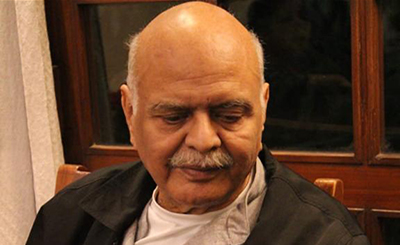
Kazuo Ishiguro. Photo courtesy of the author’s Facebook page
To read Ishiguro is to read the anti-lyrical. It is to read the story of what feels like any one of us, told by any one of us. To read Ishiguro is to face the mirror of truth.
Prize announcements have become interesting events to track in the last few years. They unfold in real time wherever you are in the world. We can await literature prizes like we do the Oscars. They generate multiple levels of festivities. Longlists and shortlists are reviewed. Reading groups read their way through the shortlists. They become subjects of lunch table conversations (in some select pockets at least). Bets are taken. Arguments are had, in the arena of Facebook if not in person, both before and after the prize is announced. But the Nobel is special: there are no lists floating around, there are no changing roster of judges on whom we can pass judgement. Not even a glimpse of the possibilities. We only have the thick smoke of rumour. It is almost as if the Swedish Academy’s announcement ought to be accompanied by a roll of thunder and a flash of lightning. The name, when it is announced, is usually an unknown and in the days and weeks and months to come, we read about the laureate and their work till eventually we get to the books themselves.
The winners of 2016 and 2017 have been unusual in different ways. Much has been said of the surprise and shock of Bob Dylan the laureate. And while the award to Kazuo Ishiguro was not received with incredulity, the predominant reactions have been bemused surprise and mild shock. It is peculiar he wasn’t prominent in anyone’s expectations, such as they were, for the Nobel for Literature, though he is universally acknowledged as a novelist of significance.
In a recent episode of the New York Times Book Review podcast, when the editors of the Book Review chat about the books they are reading, one of them talked about doing the ‘Nobel’ read. He had started on Never Let Me Go and found himself bored. The writing, he felt, was ‘unaffected’ and therefore, possibly, ‘flat’. He sounded perplexed. And a colleague of mine, who had worked at Ishiguro’s publisher Faber years ago, said Ishiguro’s work supposed to be ‘quiet, lyrical and boring’. He hadn’t read any of the books but was only plucking words that were anyway in the air. What is it about Ishiguro that descriptors such as ‘elegant’, ‘restrained’ and ‘lyrical’ are used dismissively?
There exists a vast amount of manifest appreciation of Ishiguro’s writing. But I’ve written at some length about the undeniable ambiguity in the reception of his works precisely because there lie the qualities that make Ishiguro special. The narrator of Never Let Me Go does indeed have an unaffected, flat and boring voice and thoughts. Dull details and commonplace phrases accumulate layer upon layer. It takes a while before the reader can sense that something is off-kilter in Kathy’s world. If the reader stays with the novel till she reaches that place of recognition, she will read the rest of the book with her stomach clenched in horror. (The evil humans can imagine and visit on their own.) She will exit it with deeply felt sorrow.It will mark her vision of humanity.
It takes an extraordinary artist to inhabit a voice with such discipline. Never to introduce a profundity in the narrator’s thinking. Never to give in to the temptation of making a sentence beautiful. To remain utterly, uncompromisingly faithful to the truth of an ordinary voice. How do you refrain from imparting some wisdom? How can you not give in to dazzle? In the subcontinent, our beloved and successful writers write either heightened prose or heightened drama or will have an unusual central character. Even our secular classical poetry in Sanskrit or Tamil will have a metaphor that will cause amazement at the core of the poem. We love our paisa vasool performances, our lyrical stories.
To read Ishiguro is to read the anti-lyrical. It is to read the story of what feels like any one of us, told by any one of us. Even if time and memory are the overarching themes of his novels, banality and unreliability are the cornerstones of the narratives. Except these stories are superbly constructed structures with every little and large effect on the reader’s psyche achieved by a maestro’s careful calibrations. There is an irrefutably elegant mind and a punishingly austere hand at work. In the plainness and clarity of the writing we encounter the transforming beauty of art. To read Ishiguro is to face the mirror of truth. It is no pleasant task but the rewards are genuine.
More from The Byword
Comments
*Comments will be moderated











